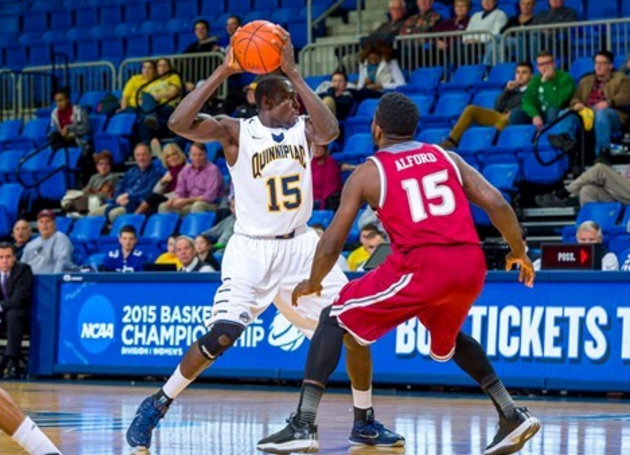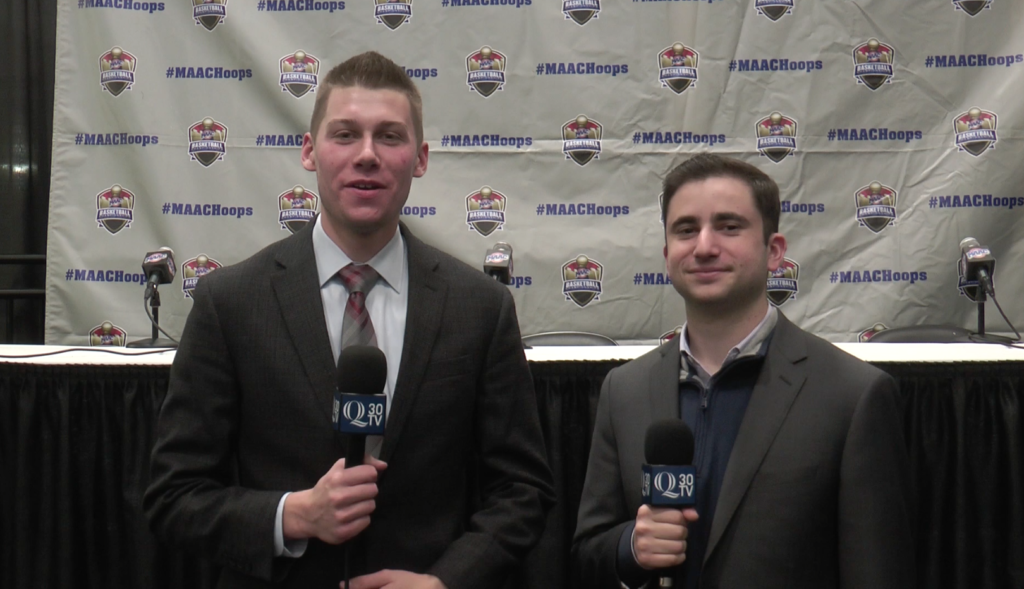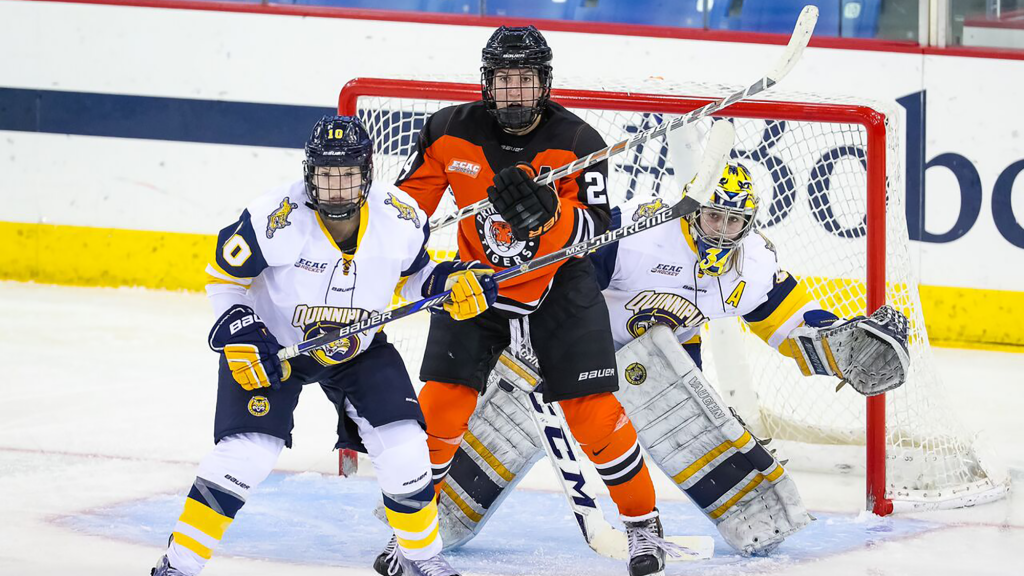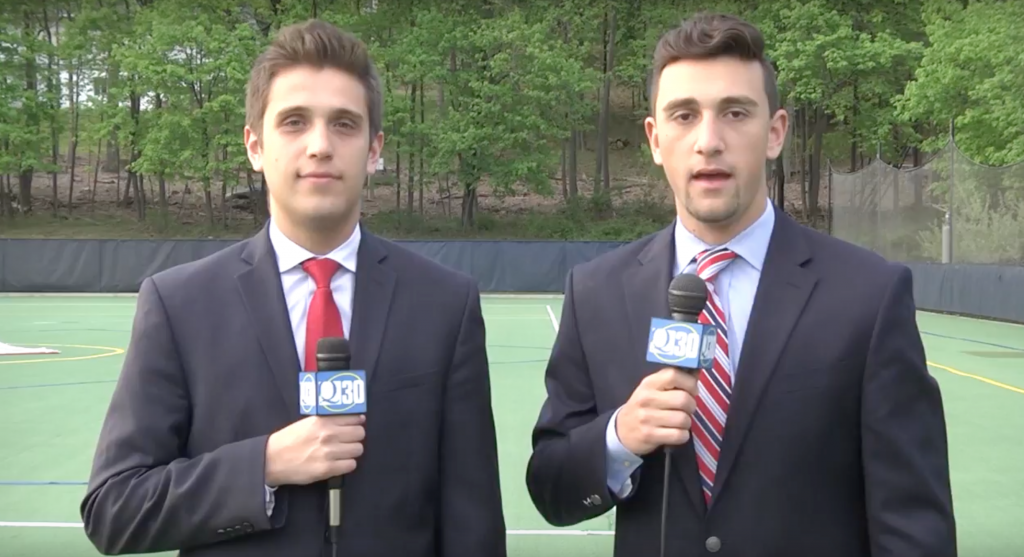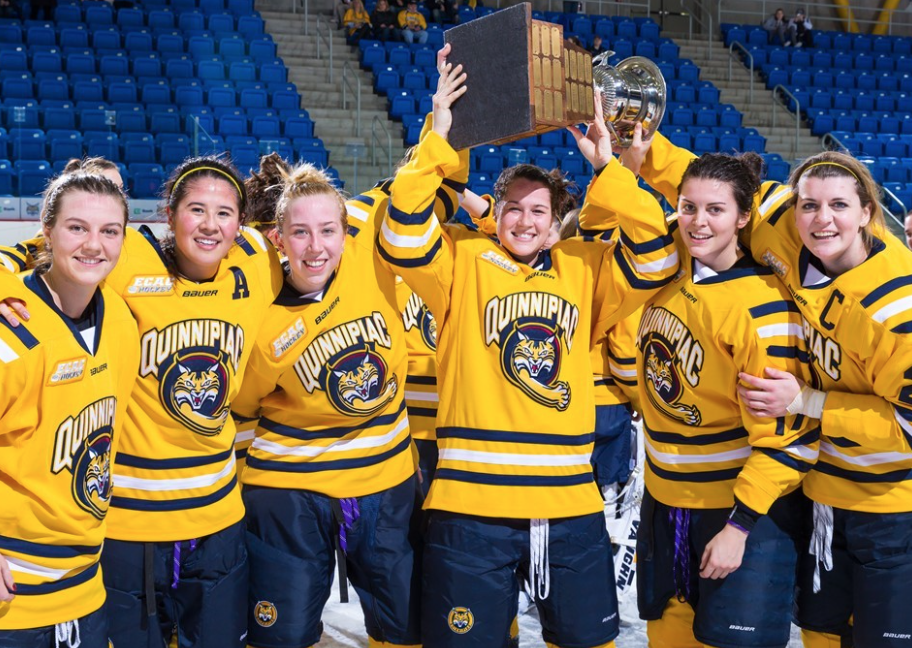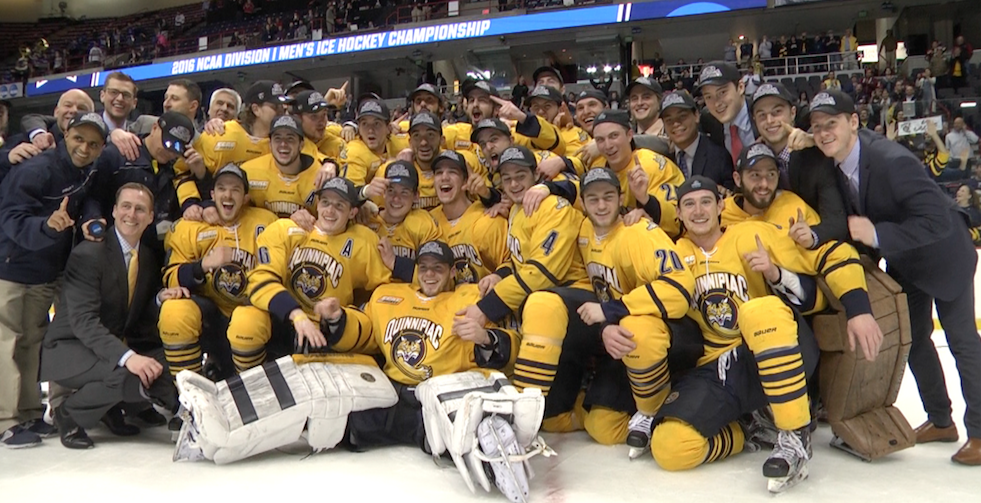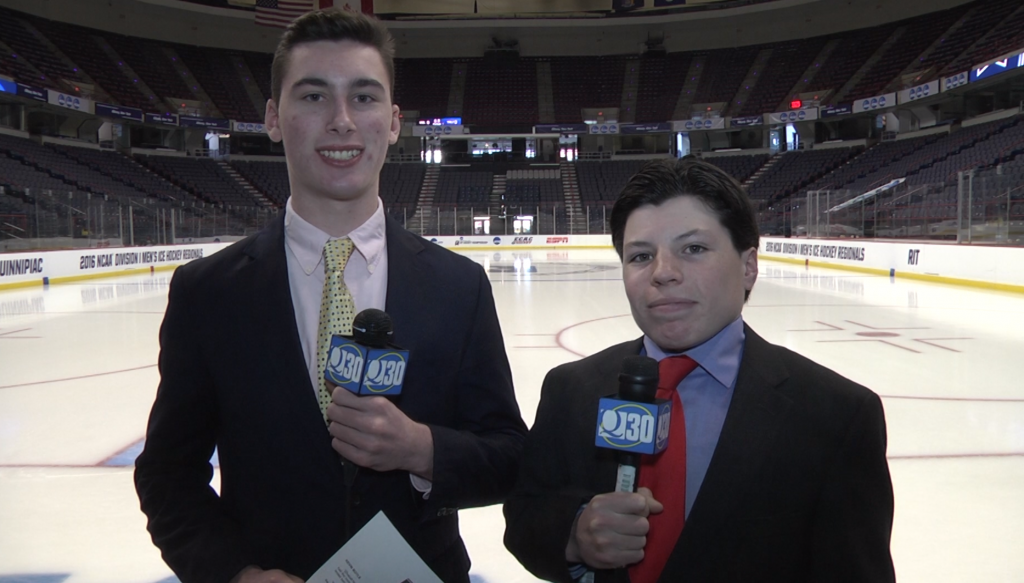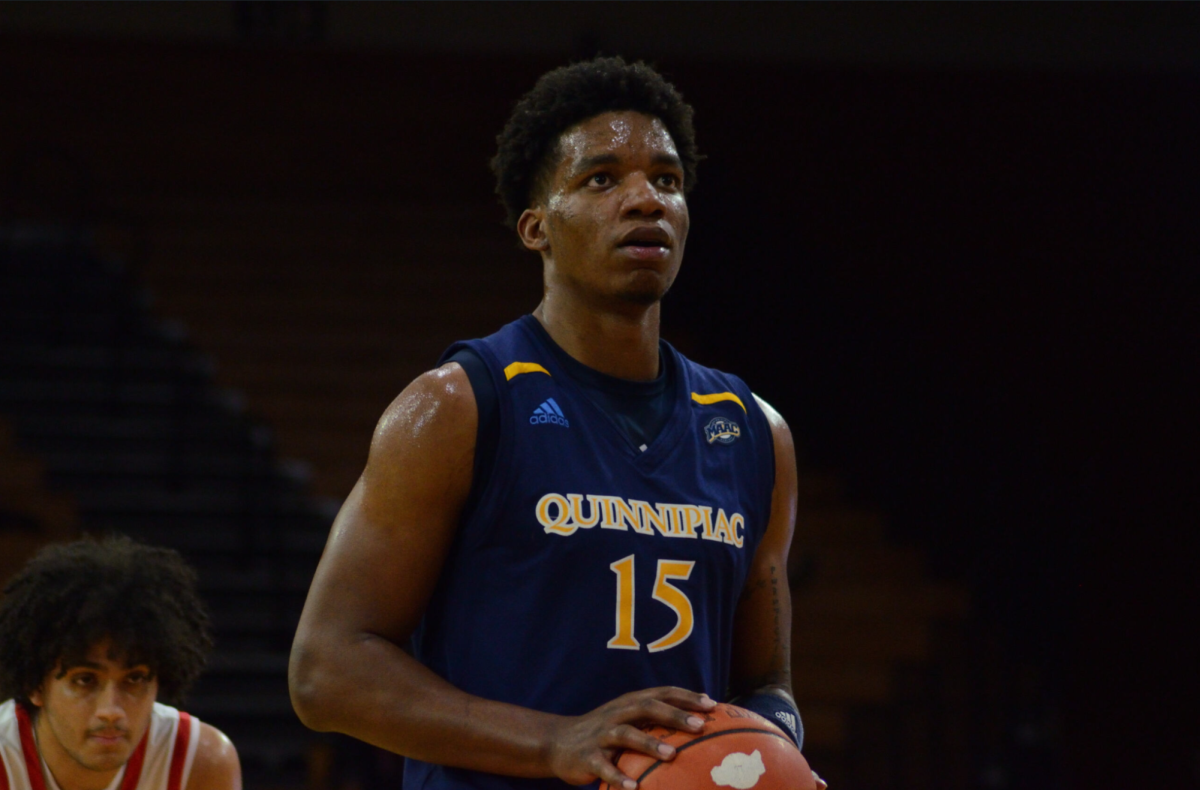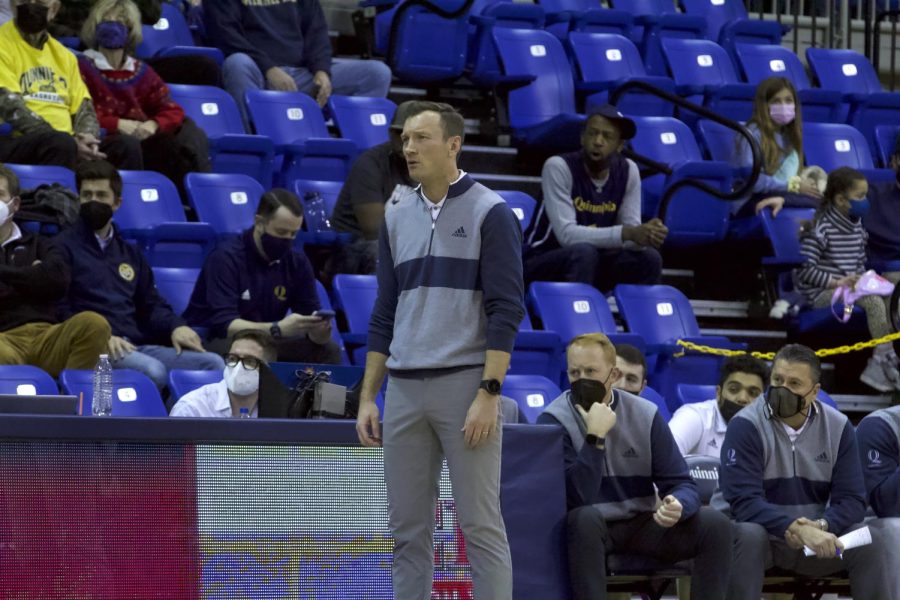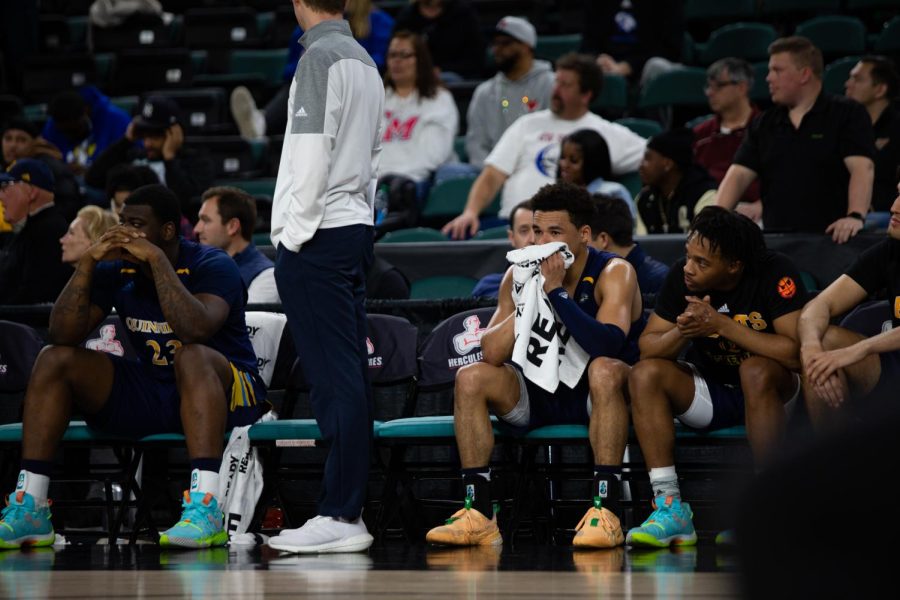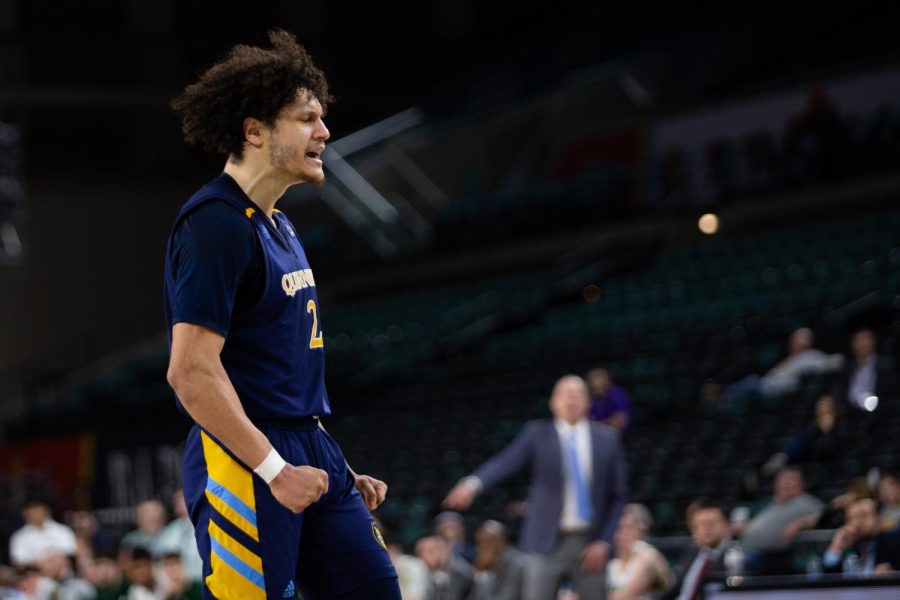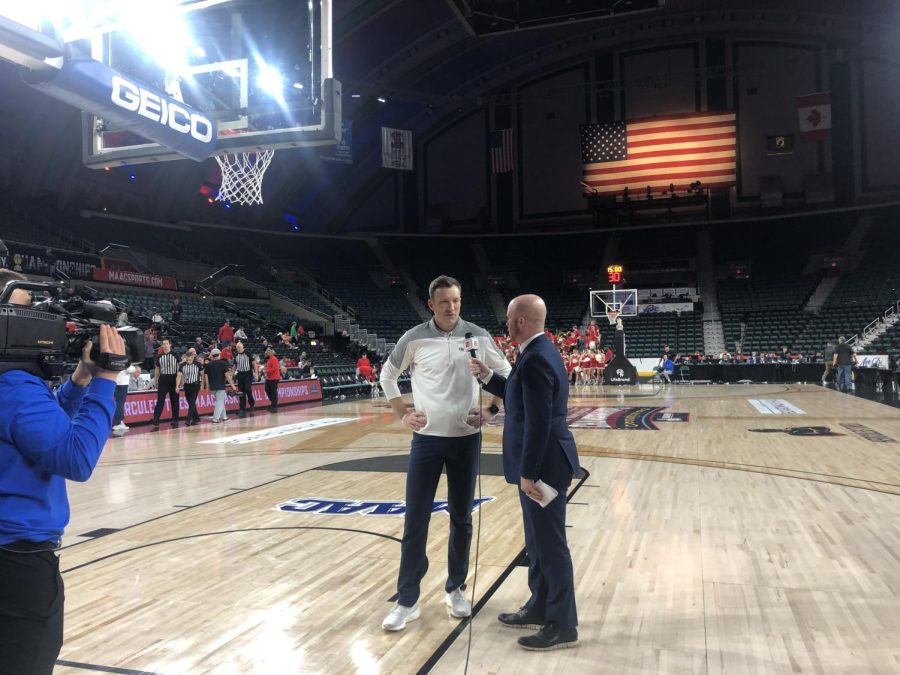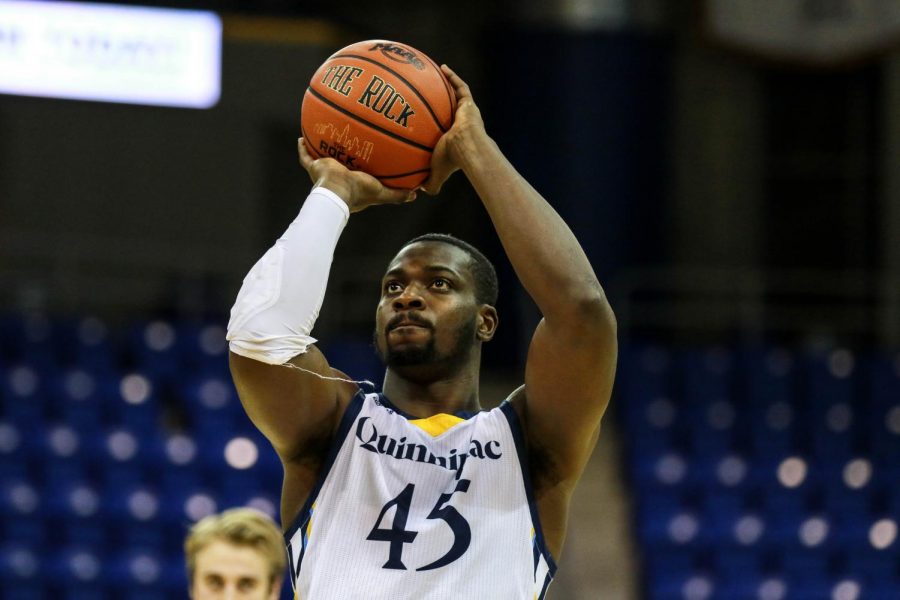Photo courtesy Quinnipiac Athletics
By Tom Cunningham
For each of the past six seasons the Quinnipiac men’s basketball team has been one of the best rebounding teams in the nation. The past three seasons Tom Moore’s squad has found themselves as the top rebounding team in the country, averaging over 40 rebounds per game. The rebounding success is due in large part to Ike Azotam and Ousmane Drame, both of whom were ranked in the top 15 in rebounds in the country their respective senior seasons. Azotam averaged 10.2 rebounds per game during the 2013-2014 campaign while Drame finished with 20 double-doubles last season and was sixth in the nation with 11.2 rebounds per game.
Drame and Azotam have graduated. The task of returning to the top is now up to sophomore forwards Chaise Daniels and Samuel Dingba, and junior transfer Donovan Smith.
“We don’t really change much with what we do based on the personnel,” assistant coach Eric Eaton, who works with the big men on a daily basis said. “I think that goes back to how we recruit and the type of guys we recruit. We’ve tweaked a couple things but everything is really just about physicality and how we approach rebounding and the different angles that we take.”
Rebounding is always a key component to a team’s success in the game of basketball. It creates second-chance scoring opportunities as well as limits scoring chances for the other team. Being able to out-rebound the opposition allows you to control the tempo of the game and keep possession of the ball for longer periods of time.
“Offensive and defensive rebounds are definitely pressed by Coach Moore every day in practice,” Smith said. “When we are in practice if you miss a box out or anything, you’re running so it’s really a point of emphasis every time.”
“Rebounding is the key in practice,” Dingba said. “We never stop with four guys crashing the boards and one guy staying up top.”
Meanwhile, Daniels is the lone big man who played significant minutes last season for the Bobcats. Daniels will be relied on heavily after playing in all 30 games last season, averaging just over three points and two rebounds per game. But Daniels showed glimpses of his potential including 12 points and nine rebounds against David Laury and the Iona Gaels. But from the start last year, Daniels had to work twice as hard in practice against the polished Drame.
“I think he [Daniels] got his butt kicked a lot,” Eaton said. “He’s now learning that he can take the next step. Guys are learning from him just as he learned from guys before him.”
With new faces mixed into the rotation, Daniels and Dingba will both be looked on to help the new players learn the ropes about what it means to be a big man for Quinnipiac. Dingba is already trying to help Smith adapt to the up-tempo Division I playing style.
“I try to teach them what to do because they are new coming from junior college,” Dingba said. “I’m trying to teach them what I learned from [Drame] last year: how to post, when to go rebound, and how not to stay behind the offensive player.”
Smith acknowledges that adapting to Division I basketball from the junior college level is going to be a bit of a transition and a learning period for him.
“They expect way more out of you [in Division I],” Smith said. “At the junior college level they just let you play but when you get here it’s like a system, and it’s a much faster pace.”
With new territory comes excitement, and Smith is very eager to work alongside Daniels in what could prove to be the next dynamic duo of big men for Quinnipiac basketball.
“When me and Chaise [Daniels] are on the floor it’s unstoppable,” Smith said. “I don’t think anybody in the MAAC is going to be able to stop us when we are on the ball.”
Quinnipiac’s new frontcourt debuts on Friday night against Sacred Heart University in the Connecticut 6 Classic. Tip is scheduled for 5:30 p.m. in New Britain.


